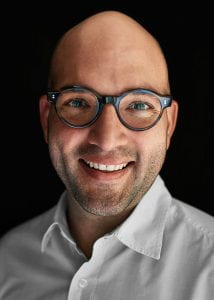
In an effort to remain accountable to communities who have been negatively impacted by past and present medical injustices, the staff at Himmelfarb Library is committed to the work of maintaining an anti-discriminatory practice. We will uplift and highlight diverse stories throughout the year, and not shy away from difficult conversations necessary for health sciences education. To help fulfill this mission, we’re proud to reach out to one of our own Faculty members, Dr. Carlos Rodriguez-Diaz to hear his perspective on the COVID-19 vaccine, and what made his journey to the field of public health truly unique.
What inspired you to go into public health? How did you first get involved in HIV care and prevention?
I was inspired to pursue a career in public health by a family physician who was by head physician and was the primary health care provider to my family and almost everyone in the small town of Aguas Buenas, Puerto Rico where I was born and raised. Before my senior year in college, I had the opportunity to participate in a Summer Internship Program at the University of Michigan-School of Public Health. I had the opportunity to work with a Latino-serving organization and it was through this experience that I got involved in public health and HIV prevention. Then, I realized the privilege that I had as a young Latino gay man to have access to education and contribute to my community by engaging in public health training, practice, and research. I am now using my privilege to disrupt privileges.
What brought you to GW?
After nearly a decade working at the University of Puerto Rico-School of Public Health, I felt it was the time to expand my experiences and contribute to public health efforts in Puerto Rico but from a different platform. I also wanted to be more engaged in public health initiatives at US national level. GW’s location in the US capitol was a very attractive, particularly after experiencing at first had how public health efforts in the US are hindered by the lack of representation and the colonial experience of Puerto Rico. Further, GW is an established institution with ample experience conducting research in areas of my interest and expertise.
What has been the most rewarding aspect of your work?
The opportunity to work with community members to identify public health challenges and address these challenges.
We see a rise in misinformation with the COVID-19 vaccine. What lessons do you think scientists and medical experts can learn from that? How can scientific research be more transparent and accessible to the public?
We need to listen and to be better communicators. Based on my experience, most of the questions people have about the COVID-19 vaccine are legitimate. People need to be listened to and must receive culturally appropriate information. As scientists, we need to work on our health communications skills. We might be experts in an area of knowledge, but that does not mean that we know how to communicate information to lay populations. We either develop skills to engage with multiple audiences or work with experts who can help us communicate effectively. Further, we should facilitate those scientists from minoritized populations (e.g., Latinos, Black, LGBTQ, Native Americans) to have access to mass media and platforms to reach out to their communities. No one else can speak to a community like a community member.
What are your future research related plans or areas of interest at this time?
I plan to continue working with community-based organizations and other community leaders to develop strategies to reduce health inequities and health disparities. The beauty of conducting community-based participatory research is that we are constantly focusing on the priorities identified by the community rather than working on a rigid research agenda. I also expect to continue my engagement in research activities related to the Ending the HIV Epidemic. I am collaborating in community-centered projects to address social determinants of HIV in Washington, DC and Puerto Rico. I am also planning to continue to be engaged in COVID-19 related research with Latino populations.
We now have multiple vaccines for COVID and more are in development based on a wide variety of techniques. Do you see this progress as potentially helpful in the development of an HIV vaccine?
Yes. The SARS-CoV-2 vaccine effort organized extraordinary resources and unprecedented global collaborations. The scientific achievements of COVID-19 vaccines are now inspiring a renewed sense of urgency for the HIV vaccine development effort.
What advice, if any, do you have for students just starting out?
Aim for what you are passionate about. Always be yourself. Never become someone else to achieve your goals. Listen to your mentors and once you achieve your goals, pay it forward.
On behalf of the Himmelfarb library we would like to extend our thanks to Dr. Rodríguez-Díaz for participating in this interview!


